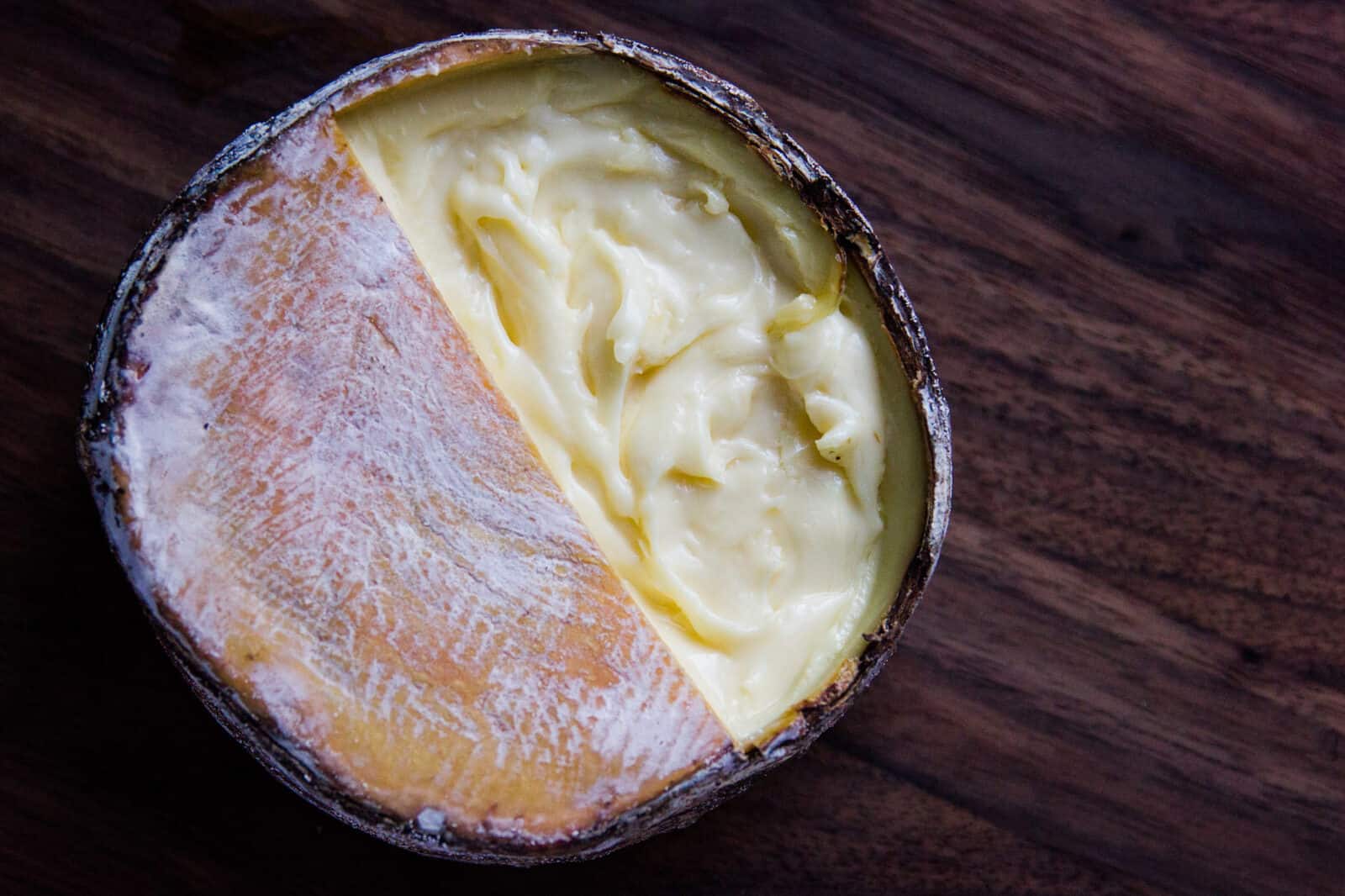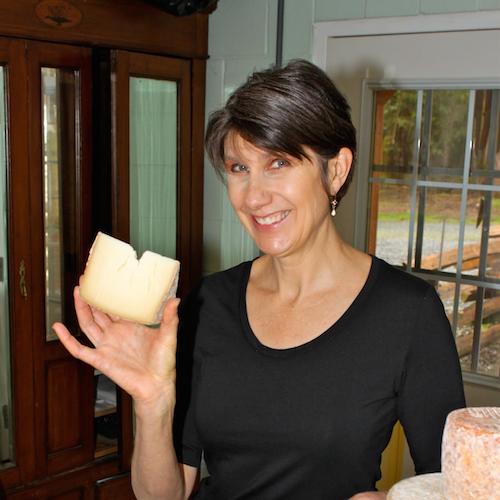
 Why do some cheeses get runnier with age, while others get firmer?
Why do some cheeses get runnier with age, while others get firmer?
 The changing texture of an aging cheese displays the fascinating effect that time and circumstances have on its chemistry. Did I mention science was involved? Indeed, the art of the cheesemaker and affineur involves the skilled orchestration of that science.
The changing texture of an aging cheese displays the fascinating effect that time and circumstances have on its chemistry. Did I mention science was involved? Indeed, the art of the cheesemaker and affineur involves the skilled orchestration of that science.
A cheese that is firm or hard in texture—take, for example, Parmigiano Reggiano—starts out as small curds that have retained a decent mineral content and are sturdy enough to be firmly pressed, creating a low–moisture wheel capable of aging slowly for a long time. These wheels tend to be large for two reasons. One, the surface area is reduced, which slows the drying–out process that will continue with time. (If the cheese dries out too much, it will turn into a flavorless brick.) And two, the size also helps reduce the effect of any surface microbes that might try to soften the cheese from the outside in. (We’ll talk about those next.) If aged properly, fat and protein break down, creating a melt-in-your-mouth texture despite the low moisture.
At the opposite end of the spectrum are soft-ripened cheeses, like Jasper Hill Farm Winnimere and Uplands Cheese Rush Creek Reserve. When these small–format disks are made, the initial curd is quite wet. Rather than being pressed to expel moisture, they simply drain slowly, losing a lot of mineral content. This sets up the chemistry so that the pH isn’t stable—a critical factor. During aging, surface microbes, yeasts, molds, and bacteria, slowly raise the cheese’s pH from the outside in, often from a starting point of around 5.0 (about as tart as a tomato) to over 8.0 (on the alkaline side). As a result, cheese proteins (caseins) reach a pH in which they regain an affinity for binding water. In a humid aging room, moisture is harvested and reincorporated into the cheese. If those conditions are perfect, the cheese will reach a smooth, even, spreadable consistency. But it doesn’t stop; as time goes by, the curd is likely to continue liquefying. The window of perfection for these gastronomic delights is short, so don’t wait too long to spoon in!




